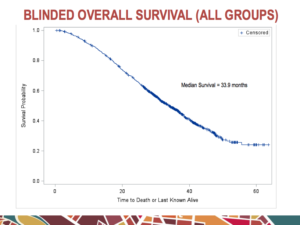Fifteen AACR21 On Demand Presentations To Watch
The annual meeting of the American Association for Cancer Research (AACR) is an event we at Biotech Strategy Blog really enjoy writing about due to the outstanding depth and breadth of the scientific content.
The 2021 organizers led by program committee chair Prof Charles Swanton FRS are to be congratulated in putting together a meeting that has something for everyone involved with cancer research, whether you’re in academia, industry, or clinical practice.

While we may miss the personal contact of real life meetings there are many advantages to the virtual format, including the avoidance of scheduling conflicts, the ease of hearing and seeing presentations without worrying about the person in front or poor room audio quality, not to mention the ability to stop and rewind a presentation if you didn’t quite catch what was said. The virtual format definitely improves accessibility for those who are disabled or for whom English may be a second or third language.
When the world moves on to hybrid virtual/live meetings as looks likely in 2022 then we hope we won’t lose all the advantages of the virtual meeting concept. It’s outside the scope of BSB, but there is an opportunity to reimagine the medical/scientific meeting rather than simply go back to what we had before.

Spring flowers herald the start of a new cancer conference season
In this preview post we’re taking a look at the “on-demand” sessions available starting on April 9, 2021 – we’ve selected fifteen presentations which caught our attention. Some are by researchers we’ve interviewed on BSB, others are stories we’ve been following around a particular topic or target.
If you’re looking to go outside your own area of interest at AACR21 and are overwhelmed with choice then this post offers a few suggestions and explains why they should be worth watching.
To learn more about the hot topics at AACR21 and get a heads up on our oncology commentary and insights, subscribers can log-in or you can click to gain access to BSB Premium Content.
This content is restricted to subscribers


 Just as experienced sailers learn to make best use of the available knowledge on sea breezes, tides, tidal winds, catspaws, headsails, heels, genoa etc, so immunologists are experimenting with various modalities.
Just as experienced sailers learn to make best use of the available knowledge on sea breezes, tides, tidal winds, catspaws, headsails, heels, genoa etc, so immunologists are experimenting with various modalities.




